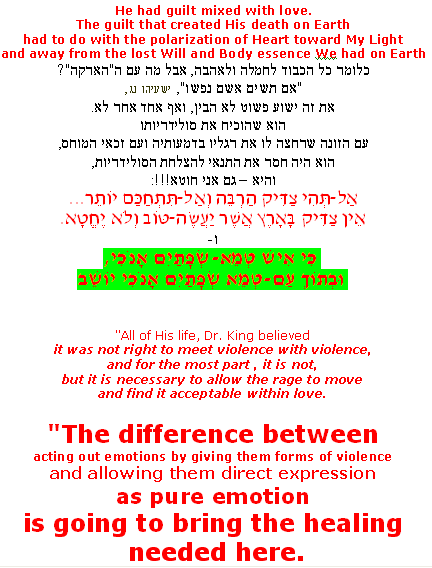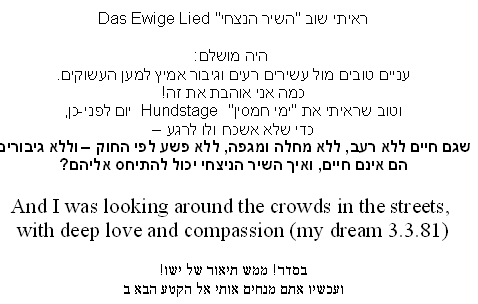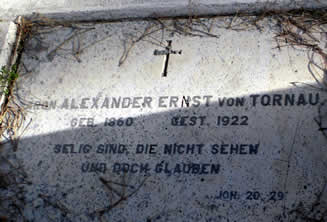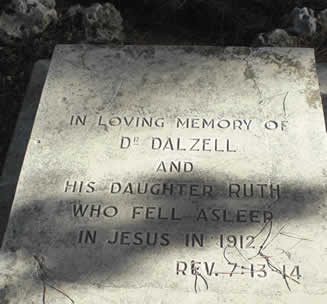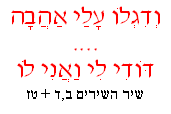|
s
InteGRATion into
GRATeFULLness
Singing&Sounding keeps me Sound
Stille Nacht - Silent Night
| 2007_12_25 |
See my
work on this song following a movie about its authors Joseph Moor and Franz Xaver Gruber in puzzle piece 46 "Love&Light&Peace&Joy?" >2001_12_25 |
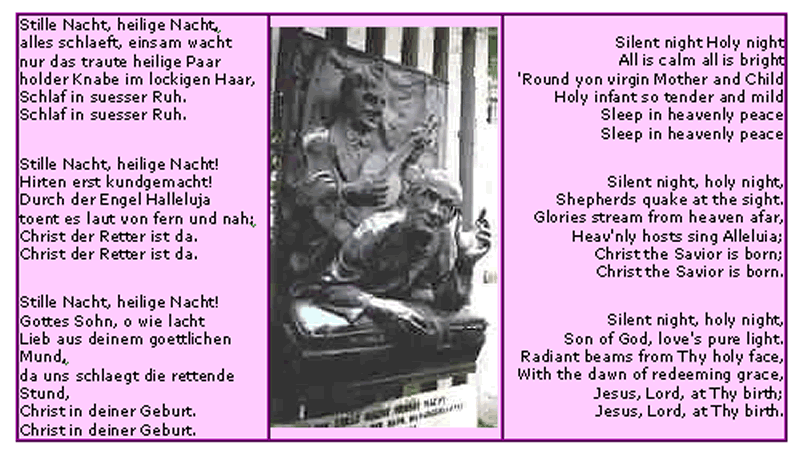
"The Eternal Song
Perhaps this is part of the miracle of "Silent Night."
The words flowed from the imagination of a modest curate.
The music was composed by a musician who was not known outside his village.
There was no celebrity to sing at its world premiere.
Yet its powerful message of heavenly peace has crossed all borders and language
barriers,
conquering the hearts of people everywhere."
From my diary December 25, 2006: |
Comment on November
22, 2010:
Among all the songs in SongGame 2007, which I keep rehearsing,
I, for the first time, learnt by heart the 3 stanzas of "Stille Nacht".
All my resistance has gone.
First , I wonder,
how the Bethlehem story not only got farming animals (ox and donkey) involved,
but how that story and this song placed in its center - --- shepherds!
The German second stanza says: "Shepherds first
(to be) informed"
After having read MacLeod's prophecy about "the
Shepherdess shall call us home"
[see Learn&Live
6, Nov.14, 2010]
(and isn't "Rachel", the love of Ya'acov, both: the mother sheep
and the shepherdess?)
I discern, what I never discerned before:
that the symbol of the shepherd and shepherdess in the myth about Israel's
Fathers and Mothers
has been guarded in the myth about the birth of Jesus in the New Testament
book "Luke".
Haven't I told my official and unofficial pupils over and over again,
that the Bible wanted our fathers to appear as shepherds (not as farmers or
city-people),
at a time, when "in the eyes of the Egyptians the
Hebrew [shepherds] were a disgust [to'evah]",
as is told in the Josef-story [Genesis 43:31],
and why?
because shepherds were not settling, not civilized like the Egyptians,
they were wandering,
They were fulfilling the grand command to Abraham [Genesis 12;1-3]:
Lekh-Lekha,
Go-to-yourself from every exterior security,
and only then will you become "a blessing of all
the families of the earth!"
Jeshua of Nazareth definitely is depicted as a wanderer, yes as a shepherd,
from the day of his birth, not in a bed in Nazareth, the origin of his parents,
but somewhere else, and not in a bed or house at all, but in an animal's crib!
Second:
And there is the outspoken message of the story as of the song:
This baby is God's son!
So outrageous a message for Jews and Muslims or any other religion!
It's been some time, that I understood, that this is just a "model":
for every human is God's son, or more exact: an aspect of God,
or in my metaphors:
a ray of the one sun, a wave of the one ocean, a color of the one light.
[expressed in songs like: Ride
with the Wave, and : Hi
keren ha-shemesh]
What was sort of a new (?) insight to me, this morning in the pool, was
the parallelism of "God's chosen people" and "God's
Son".
Both are models, both grew out of the understanding ("Jewish
Thought!")
that we all are dependent on each other,
therefore all should be solidary with each other
and each one should feel responsibility for the whole.
God's people are a model for all peoples,
God's son is a model for each human.
A model! not only a metaphor!
Therefore - to apply this just to one fact -
just as God's son made himself a victim ,
almost every human makes himself or herself a victim,
and therefore - has to learn to become the master of his/her destiny.
And just as God's people has made itself a victim for 2500 years ,
it now has to become, yes, is meant to become , -- a model for all nations,
how to reach "Liberty through Responsibility". (See Learn&Live
6 and 7)
![]()
2010
continuation of graveyard sequence
![]()
| SongGame 2007_12_29 |
SongGame
2007_12_26 German Christian Hymns |
SongGame 2007_12_25 Stille Nacht |
SongGame
2007_12_23 Ihr Kinderlein, kommet |
SongGame
2007_12_22 Es ist ein Ros entsprungen |
SongGame
2007_12_24 Ich steh an deiner Krippen |
SongGame
2007_12_28 Jewish Festival Songs |
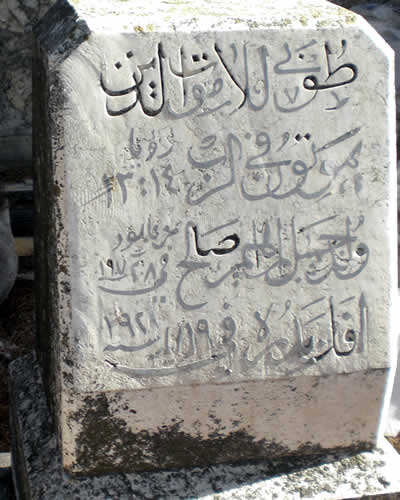 below: |
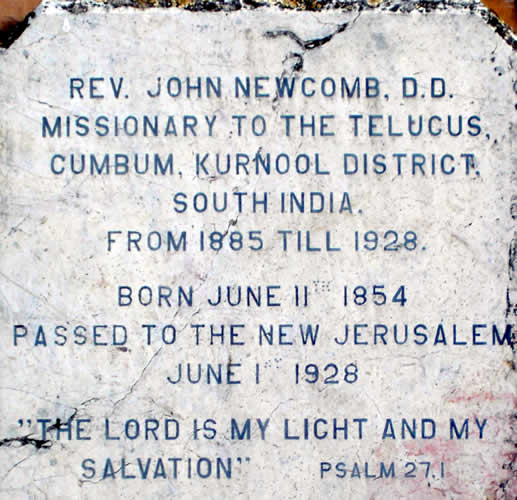 |
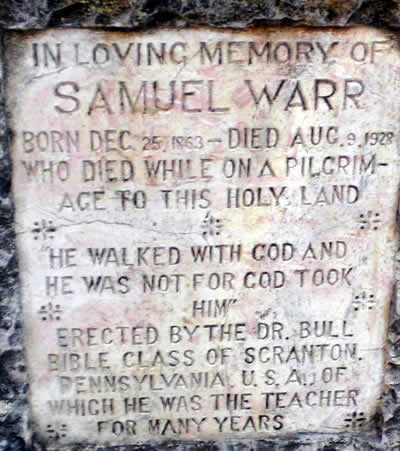 |
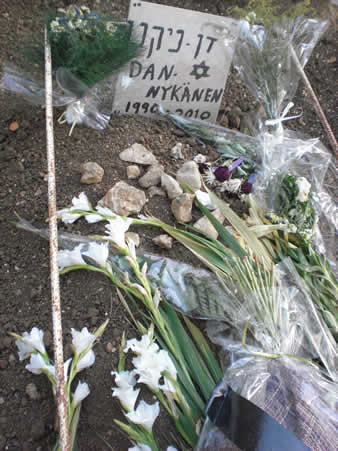 |
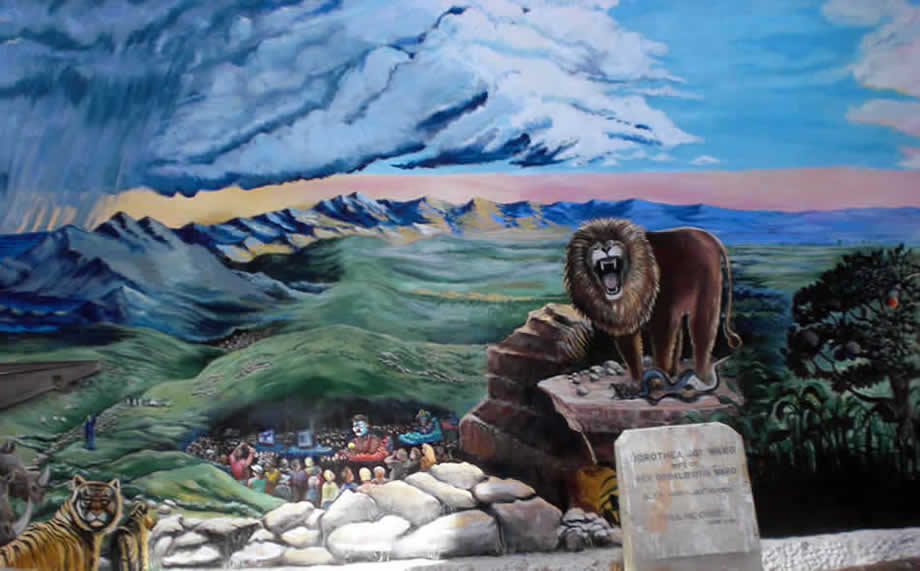
Under a roaring lion and roaring, gods-adoring masses:
Dorothea Ward, wife of Reverend Donald Otis
Ward, 1899-1923 "Till He Comes"
(New Testament)
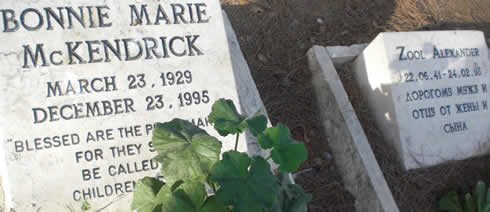
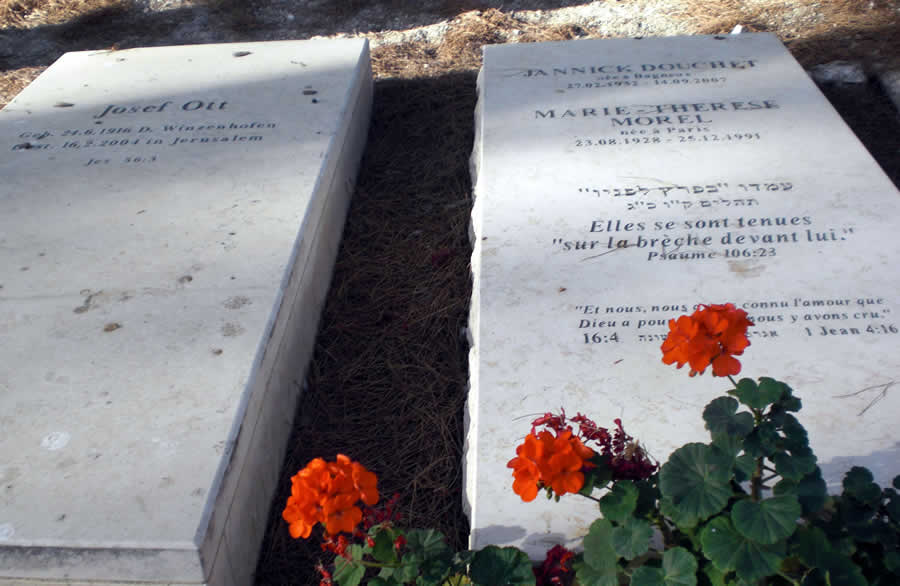
| Therefore
He said that He would destroy them, had not Moses His chosen stood before Him in the breach, to turn back His wrath, lest He should destroy them. Psalm 106:23 [I just - Oct. 26, 2010 -dared to use that metaphor "breach" in my "fantasy"] |
Next
to a simple note about "Josef Ott, 1916 Winzenhofen -2004 Jerusalem, Jes. 56,3 [this means that Josef joined the Jews!] there appears an extremely strong identification with Moses in Psalm 106 ~~~ of two French people Janneck Douchet, né à Bagneux, 1932, & Marie Therese Morel, née à Paris 1928-1991 Who were they? What did they? Where did they die? |
 |
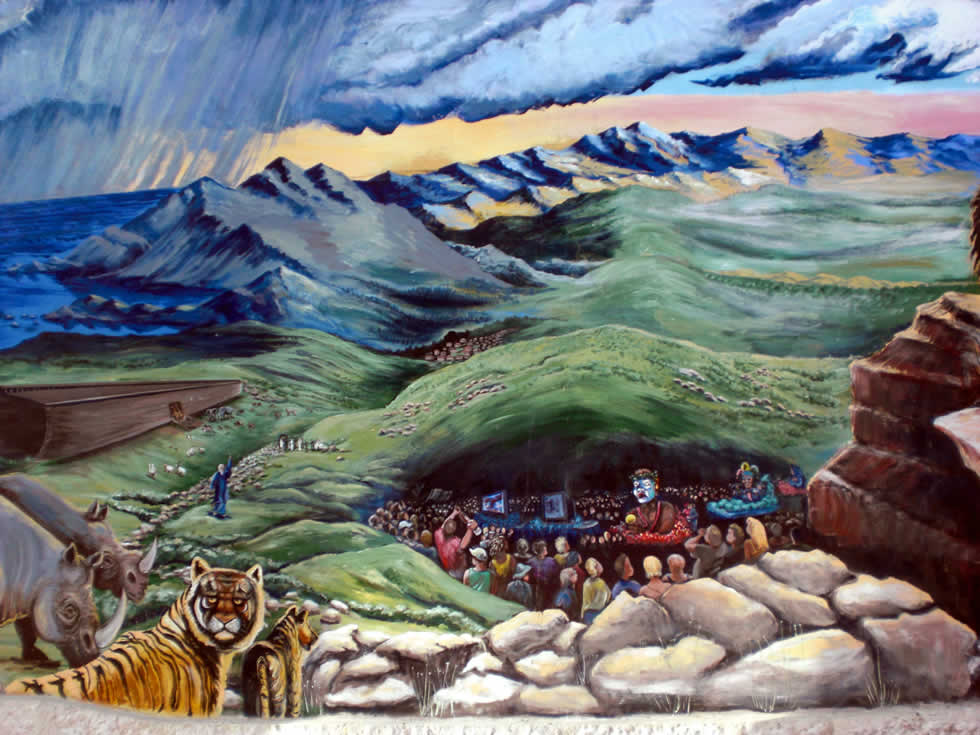
The roaring crowds, soon to be drowned, sit-settle
in a cosy basin (biq'ah - as did humankind after
the flood, [Genesis
11:2]- evading uniqueness...)
while Noah walks-with-God [Gen.
6:9] alone, outside, ready to built an arc for the chance of a re-creation
of humankind
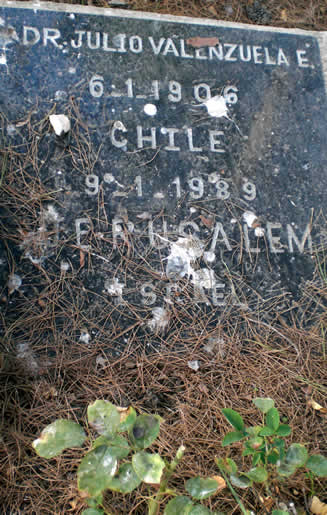 |
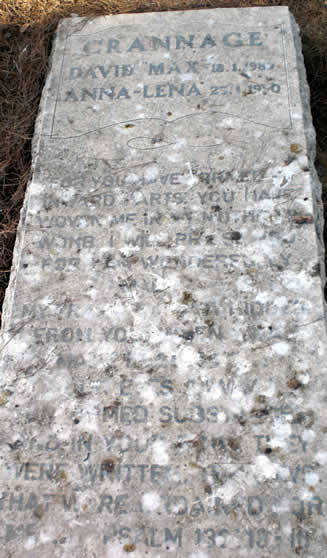 |
|
Engraved on it: two names , each with one date.
"Yes! both were born dead!
And we knew it, when they were still in the womb.
But who are we to decide, that a child should be aborted?
If this is, what God wanted, so be it."
I was deeply moved, the more so,
as they had engraved a passage from my favorite psalm 139,
which I had put into tune already in 1986 - once ~~~ twice....
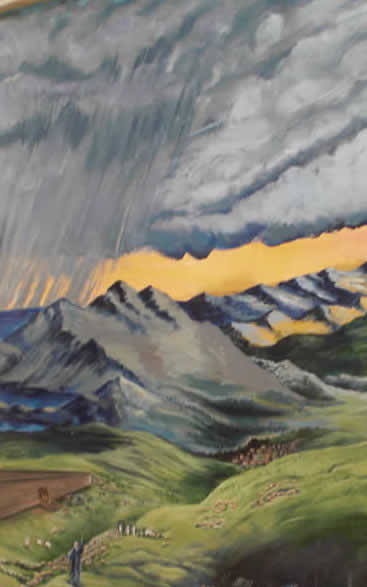 "Noakh ... whole was he and with God walked Noakh" "Noakh tamim hayah aet ha aelohim hithalekh Noakh!" |
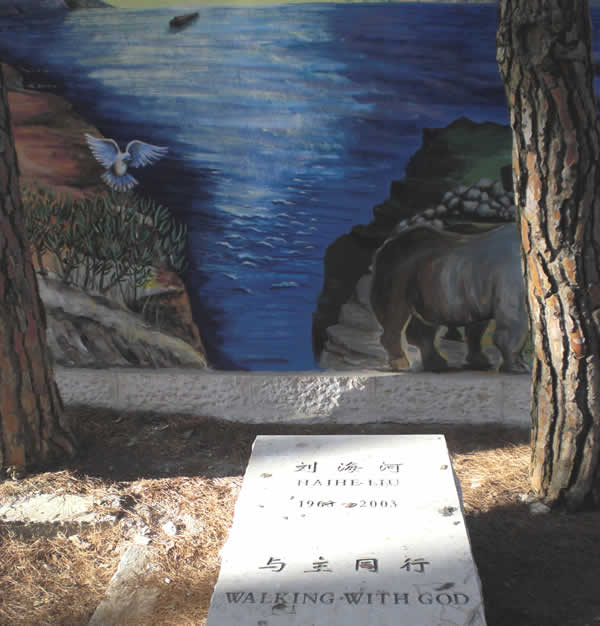 |
which was said of both, Henoch [Gen. 5:24] and Noah [Gen 6:9]? [See in pp27 Movement of Lost Will>2001/11/19
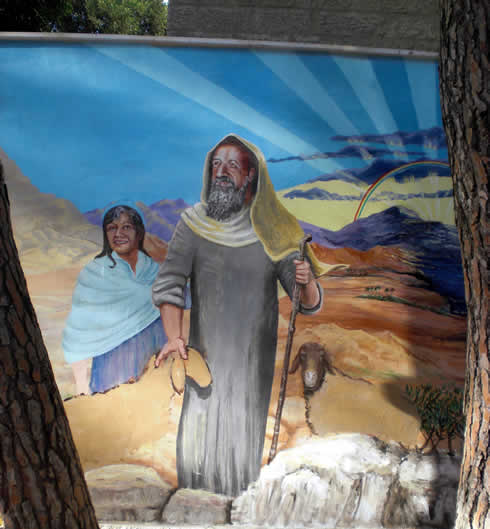
Noah and his (unnamed) wife [Gen 8:18] under the rainbow-covenant
[see 7 times the word "brith" in Gen.9:9-17
and see puzzle-piece 21, Oneness and Duality >Maryam, 2001/12/21
]
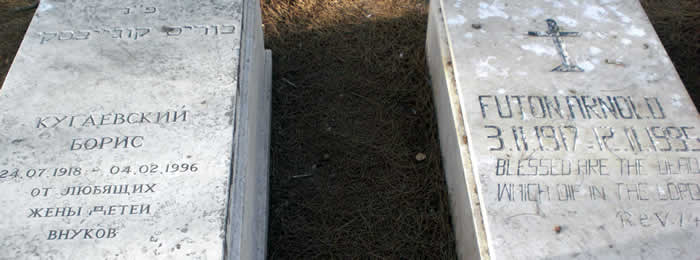 |
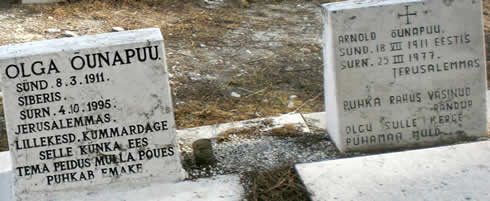 |
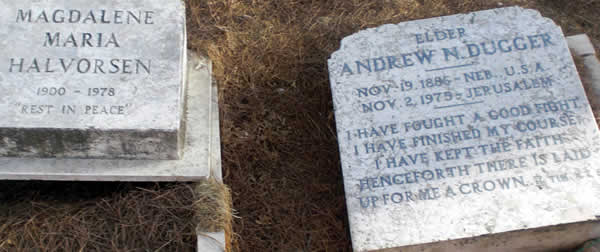 |
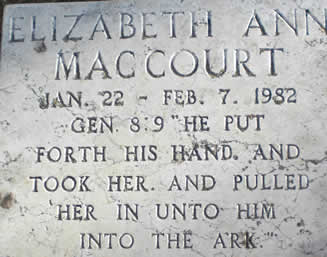 Yet another quotation from the flood-story! 
|
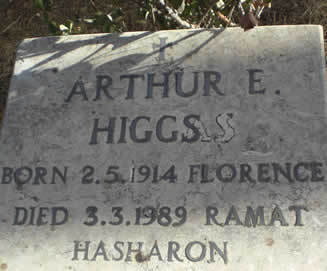 |
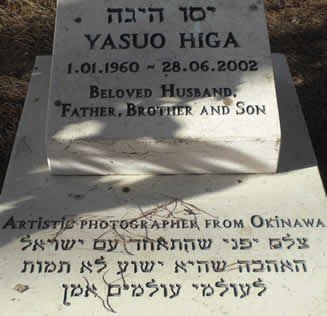 "A Japanese photographer who untied with Israel, the love that is Jesus will never ever die. Amen." |
 |
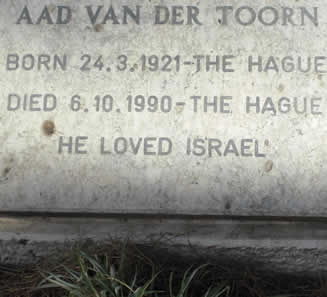
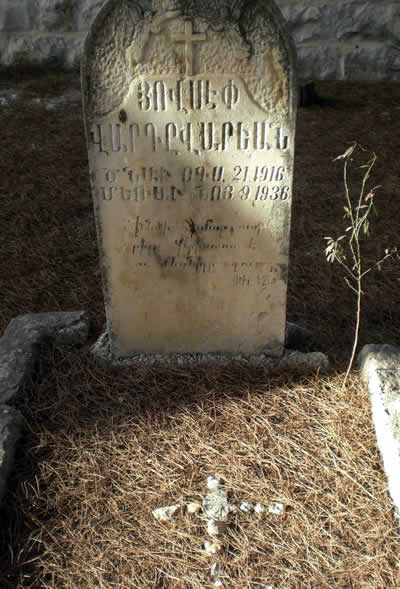 |
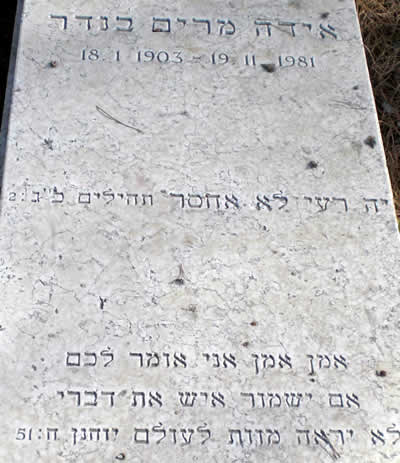 Didn't I mention this Ida Bender already? Nevermind! Perhaps she wants to appear here twice, with her quote from Psalm 23 and her second quote from John 8, in the New Testament. But what script is it, that appears on the old tombstone of 1936? I can't even decypher the number of the psalm beneath the quote. And who laid out the stones as a cross on the dry grass of the grave? |
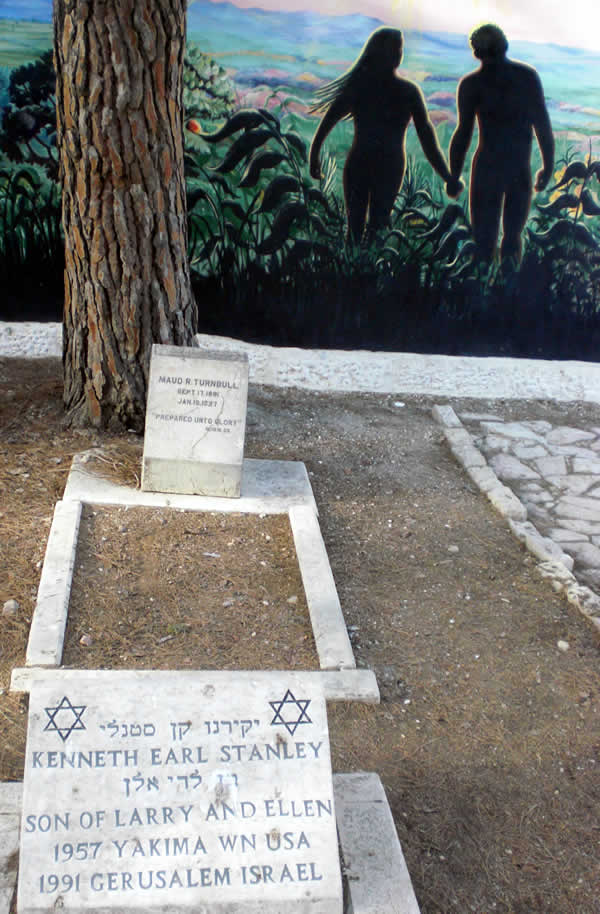
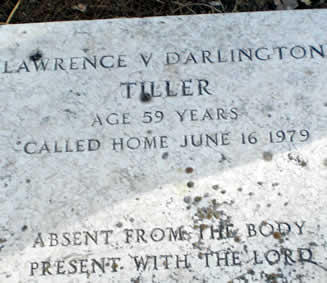 |
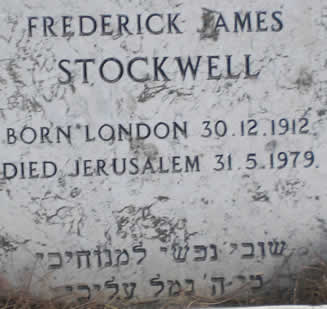 |
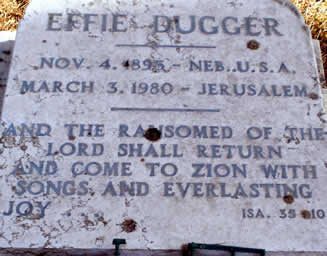 |
"Absent (only absent!!!!) from the Body, Present
with the Lord.
and two pretty quotations, but you must look them up for yourself!
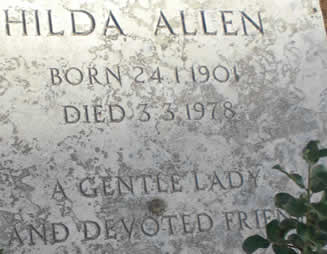 |
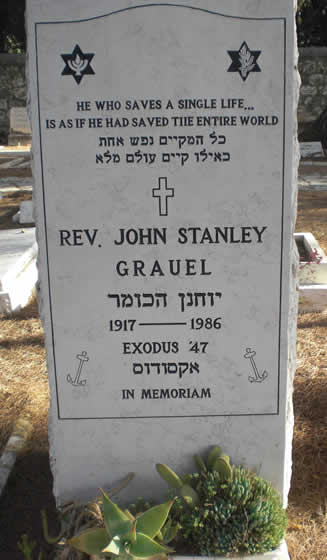 |
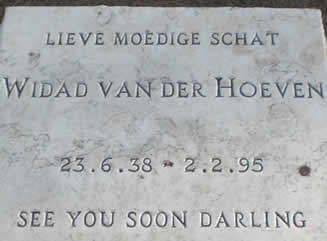 |
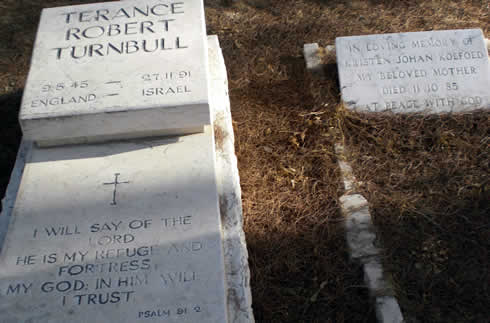 |
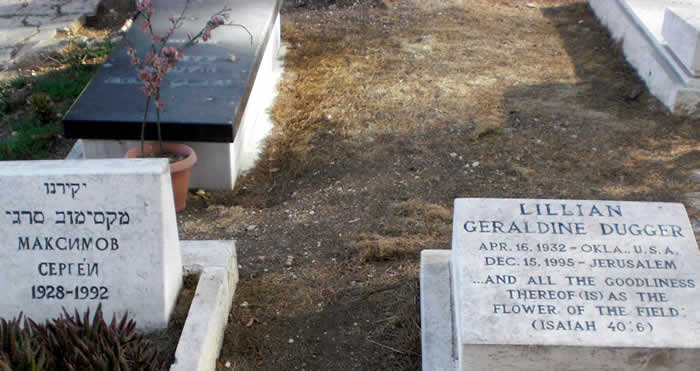 |
| Tante Elisabeth:
Bryce Adams. M.M. |
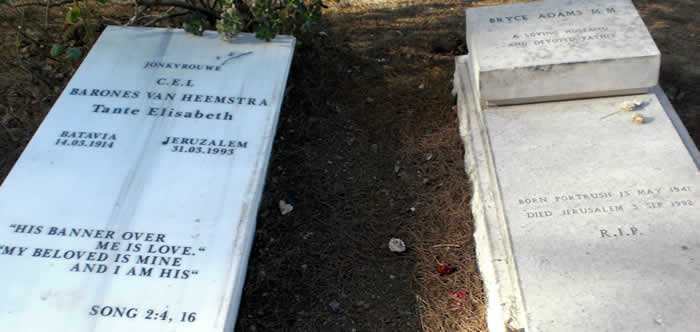 |
Continuation in SongGame 2007_12_23-Ihr Kinderlein kommet
